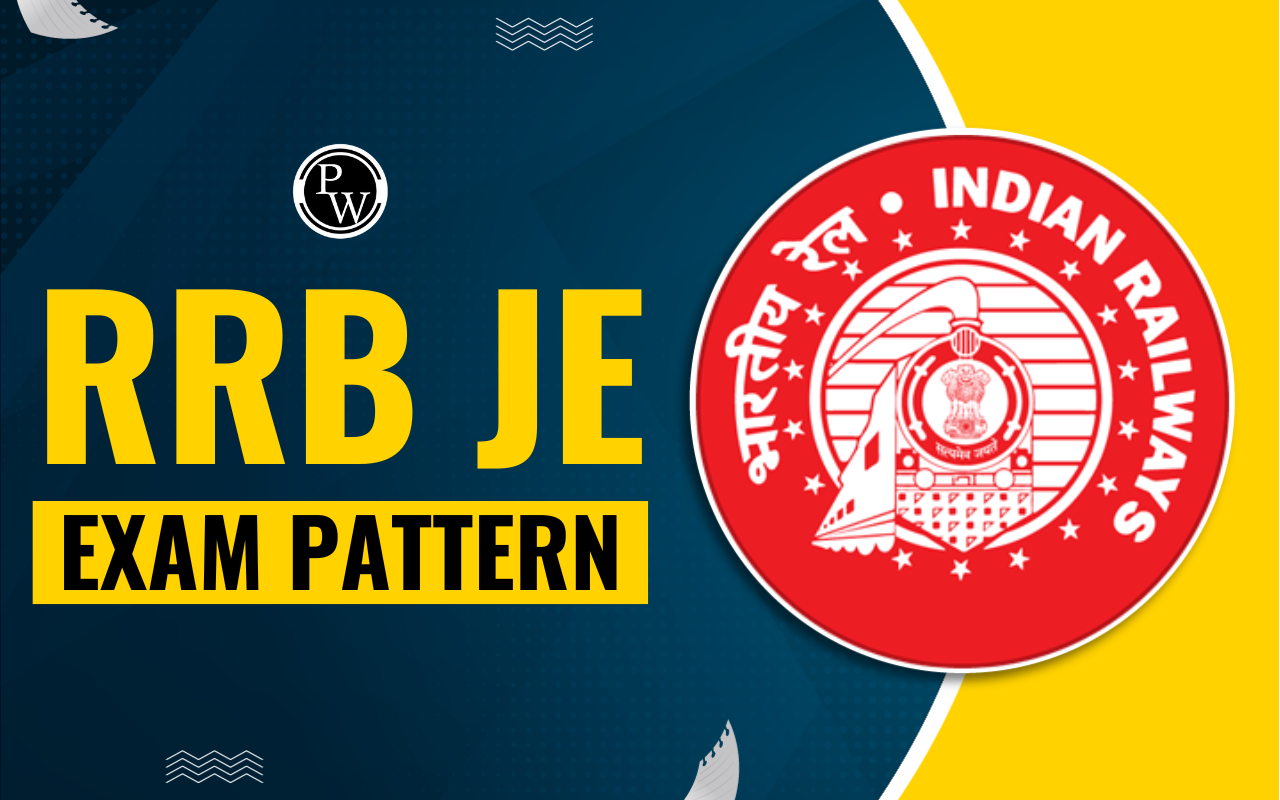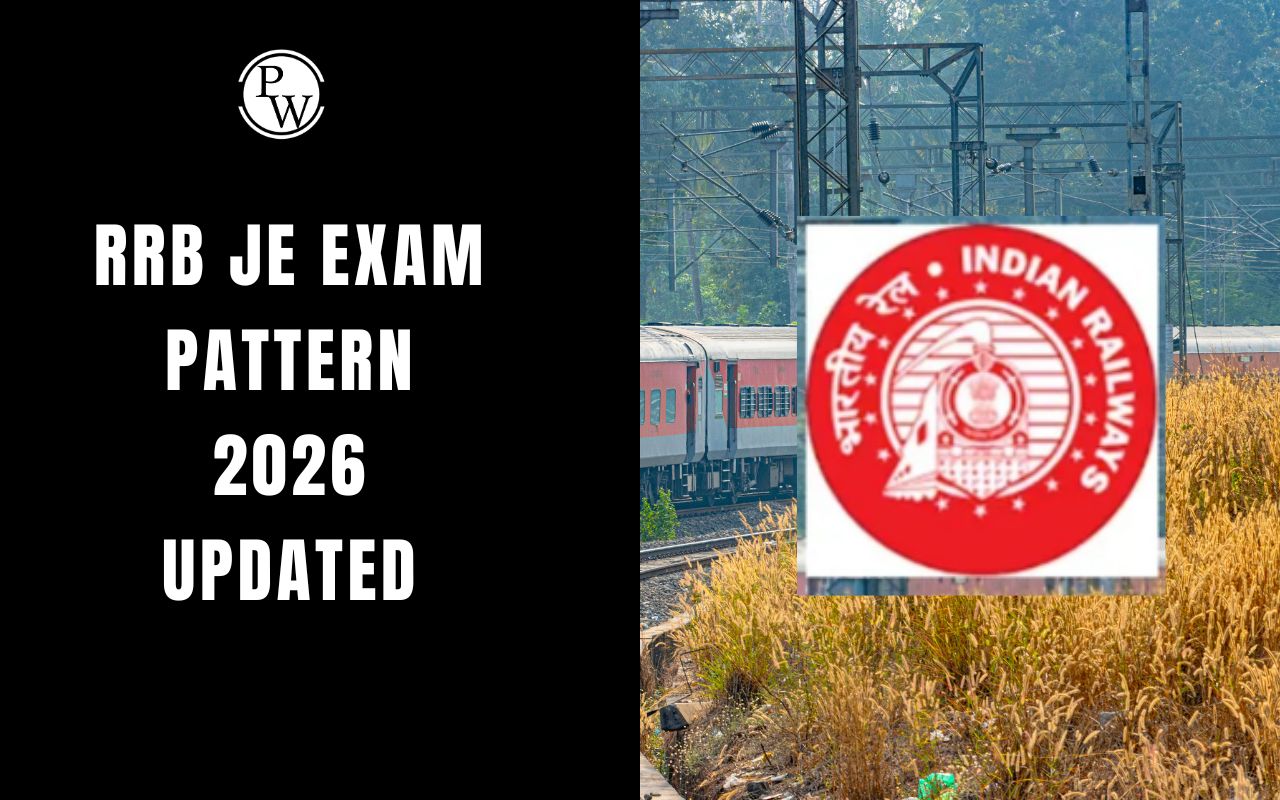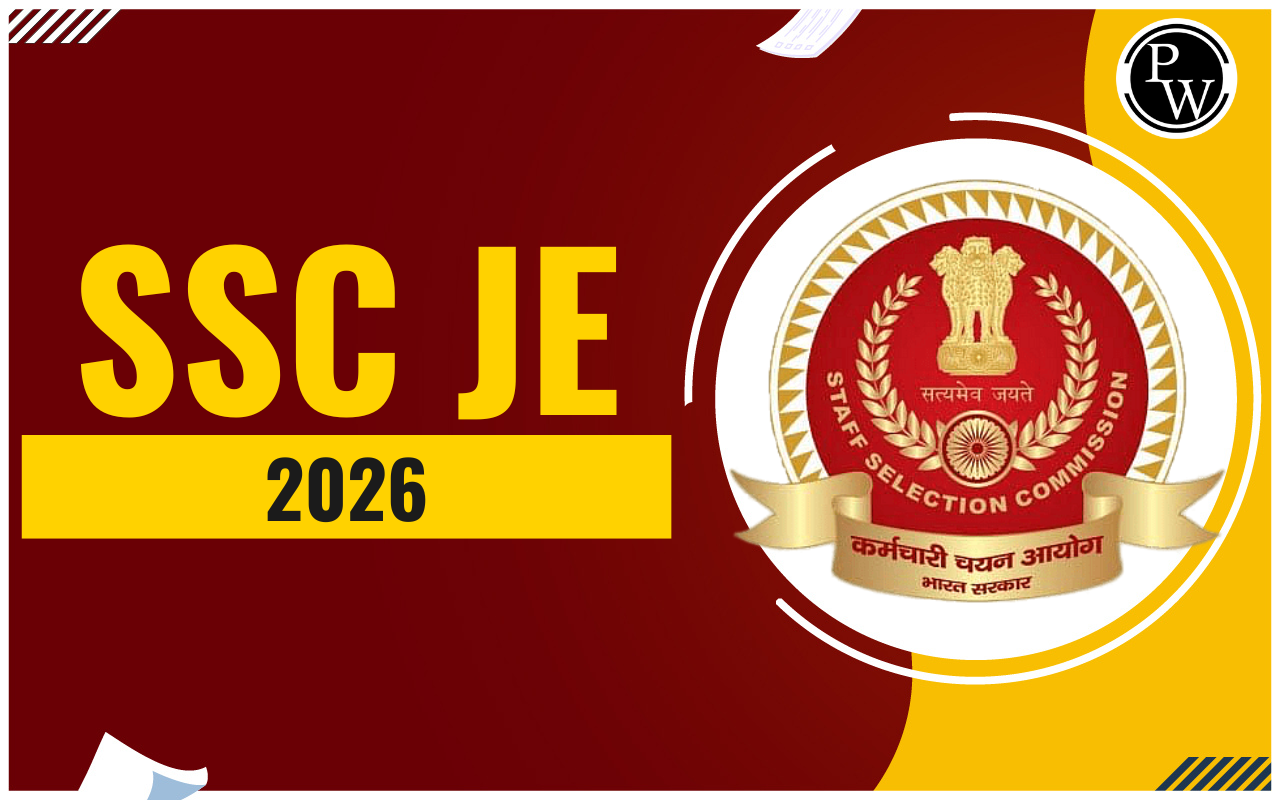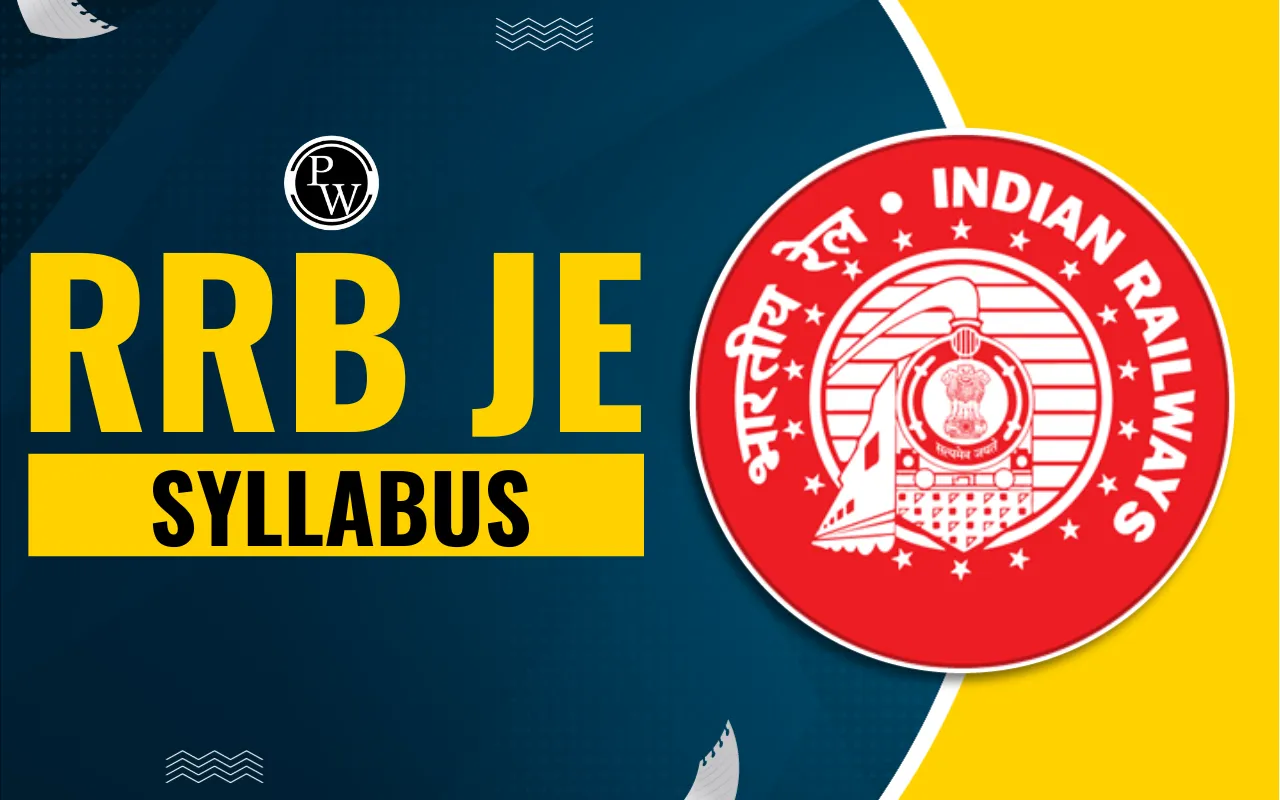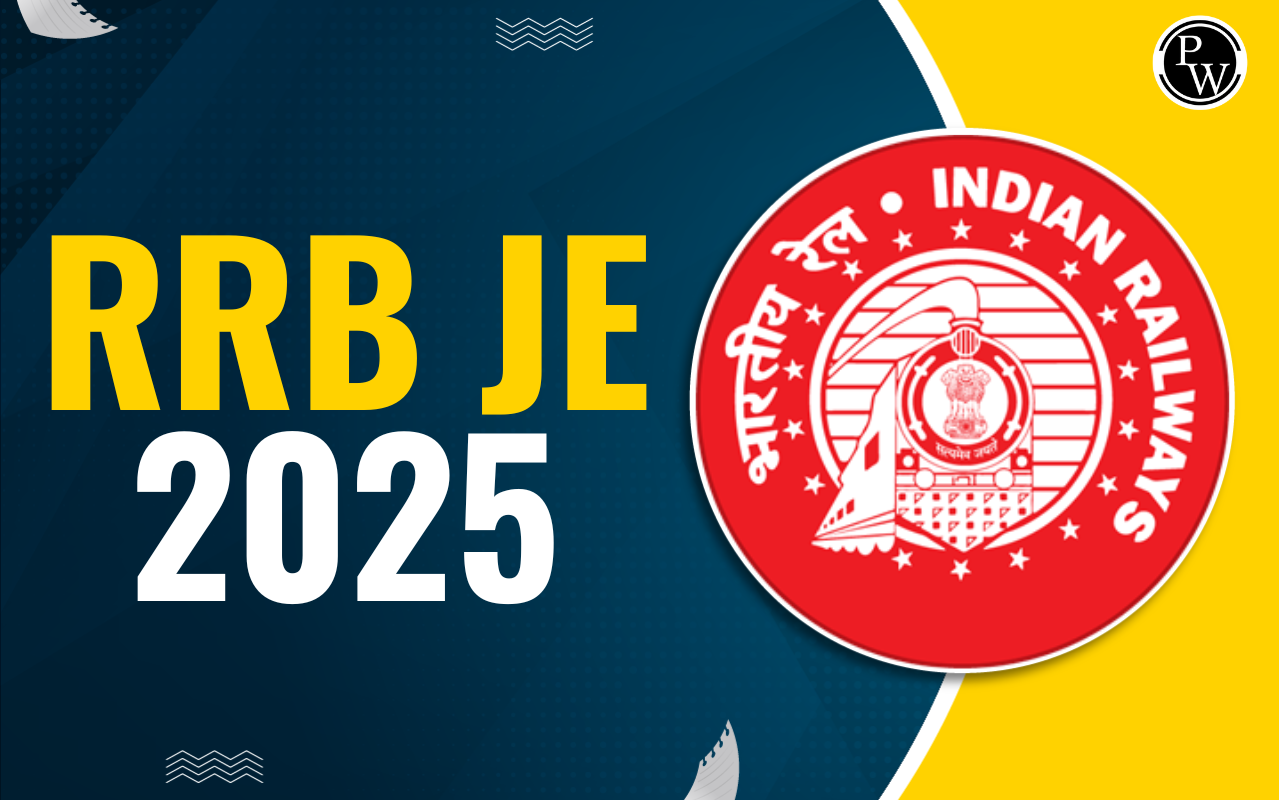
SSC JE Electrical Engineering Syllabus 2026: The Staff Selection Commission (SSC) will release the SSC JE 2026 notification in March 2026, inviting applications for Junior Engineer posts across Civil, Mechanical, and Electrical engineering disciplines. Aspiring Electrical Engineering candidates should focus on the detailed syllabus for Paper 1 and Paper 2, which tests diploma-level concepts alongside general awareness and reasoning. The exam, tentatively scheduled for May-June 2026, emphasizes core topics like circuit theory, electrical machines, and power systems to select technically proficient engineers for government departments. With 1731 vacancies expected, early preparation using the topic-wise breakdown will be crucial for success in this competitive recruitment drive.
SSC JE Electrical Syllabus 2026
The SSC JE Electrical Engineering Syllabus 2026 for Paper 1 covers General Intelligence, Awareness, and 100 marks of technical subjects at diploma level, while Paper 2 focuses exclusively on descriptive Electrical Engineering topics. Key areas include Basic Concepts, Circuit Law, AC Fundamentals, Magnetic Circuits, Electrical Machines, and Power Systems like Generation, Transmission, and Distribution. Candidates must master these alongside Measurement Instruments, Basic Electronics, and Estimation for a comprehensive preparation strategy.
SSC JE Electrical Syllabus 2026 Overview
The Staff Selection Commission will administer the SSC JE Exam 2026 in order to select Junior Engineers in the Electrical Engineering discipline. Candidates must prepare in accordance with the prescribed syllabus to maximize their chances of success. You must check a brief overview of SSC JE Electrical Engineering Syllabus from the table below:
| SSC JE Electrical Syllabus 2026 Overview | |
| Conducting Authority | Staff Selection Commission |
| Exam Name | SSC JE 2026 |
| Eligible Branches | Civil Engineering, Mechanical Engineering, Electrical Engineering, Quantity Surveying and Contracts |
| Vacancies | To Be Announced |
| Category | AE/JE Exam |
| Level of Exam | National Level |
| Apply Mode | Online |
| SSC JE 2026 Notification Release | March 2026 |
| Selection Process | Paper 1 & Paper 2 |
| SSC JE Electrical Syllabus 2026 | Available Here |
| SSC JE 2026 Official Website | ssc.gov.in |
SSC JE Electrical Engineering Syllabus 2026
The SSC JE Electrical Engineering Exam consists of Paper 1 and Paper 2 to select the suitable aspirants offering Junior Engineer positions. The individuals are advised to understand the entire syllabus to initiate their preparation effectively to secure top scores. In this section, we have mentioned the complete syllabus for SSC JE Electrical Engineering for your reference:
SSC JE EE Paper 1 Syllabus 2026
The SSC JE Paper 1 includes the General Intelligence & Reasoning, General Awareness and Electrical Engineering subjects having a weightage of 200 marks. Candidates can check the topic-wise details of the syllabus for all the subjects in this section:
| SSC JE EE Paper 1 Syllabus | |
| Section | Topics |
| General Intelligence & Reasoning | Classification, Analogy, Coding-Decoding, Paper Folding Method, Matrix, Word Formation, Venn Diagram, Direction and Distance, Blood Relations, Series, Verbal Reasoning, Non-Verbal Reasoning, Seating Arrangement, Puzzles & Seating Arrangement. |
| General Awareness | Static General Knowledge, Science, Current Affairs, Sports, Books and Authors, Important Schemes, Portfolios, People in the News, History, Culture, Geography, Economics, Awards and Honors. |
| Electrical Engineering | Electrical Engineering: Basic concepts, Circuit law, AC Fundamentals, Magnetic Circuit, Electrical Machines, Utilization and Electrical Energy, Transmission and Distribution, Estimation and Costing, Basic Electronics, Generation, Fractional Kilowatt Motors and single-phase induction Motors, Measurement and Measuring instruments, Synchronous Machines. |
SSC JE EE Paper 2 Syllabus 2026
The SSC JE Paper 2 focuses solely on the core technical subjects, it contains the questions from specific subjects as per Diploma level. Candidates must refer to this section to understand the topic-wise syllabus for all the subjects:
| SSC JE EE Paper 2 Syllabus | |
| Subjects | Topics |
| Basic Concepts | Concepts of resistance, inductance, capacitance, and various factors affecting them. Concepts of current, voltage, power, energy, and their units. |
| Circuit law | Kirchhoff’s law, Simple Circuit solution using network theorems. |
| Magnetic Circuit | Concepts of flux, MMF, reluctance, Different kinds of magnetic materials, Magnetic calculations for conductors of different configurations e.g. straight, circular, solenoidal, etc. Electromagnetic induction, self, and mutual induction. |
| AC Fundamentals | Instantaneous, peak, R.M.S. and average values of alternating waves, Representation of sinusoidal wave form, simple series and parallel AC Circuits consisting of R.L. and C, Resonance, Tank Circuit. Poly Phase system – star and delta connection, 3 phase power, DC, and sinusoidal response of R-Land R-C circuit. |
| Measurement and measuring instruments | Measurement of power (1 phase and 3 phase, both active and re-active) and energy, 2 wattmeter method of 3 phase power measurement. Measurement of frequency and phase angle. Ammeter and voltmeter (both moving oil and moving iron type), an extension of range wattmeter, Multimeters, Megger, Energy meter AC Bridges. Use of CRO, Signal Generator, CT, PT, and their uses. Earth Fault detection. |
| Electrical Machines | (a) D.C. Machine – Construction, Basic Principles of D.C. motors and generators, their characteristics, speed control, and starting of D.C. Motors. Method of braking motor, Losses, and efficiency of D.C. Machines. (b) 1-phase and 3-phase transformers – Construction, Principles of operation, equivalent circuit, voltage regulation, O.C., and S.C. Tests, Losses, and efficiency. Effect of voltage, frequency, and waveform on losses. Parallel operation of 1-phase/3 phase transformers. Auto transformers. (c) 3-phase induction motors, rotating magnetic field, the principle of operation, equivalent circuit, torque-speed characteristics, starting and speed control of 3-phase induction motors. Methods of braking, the effect of voltage and frequency variation on torque speed characteristics. |
| Fractional Kilowatt Motors and Single Phase Induction Motors | Characteristics and applications. |
| Synchronous Machines | Generation of 3-phase E.M.F. armature reaction, voltage regulation, parallel operation of two alternators, synchronizing, and control of active and reactive power. Starting and applications of synchronous motors. |
| Generation, Transmission, and Distribution | Different types of power stations, Load factor, diversity factor, demand factor, cost of generation, and interconnection of power stations. Power factor improvement, various types of tariffs, types of faults, and short circuit current for symmetrical faults. Switchgears – rating of circuit breakers, Principles of arc extinction by oil and air, H.R.C. Fuses, Protection against earth leakage / over current, etc. Buchholtz relay, Merz-Price system of protection of generators & transformers, protection of feeders and bus bars. Lightning arresters, various transmission and distribution systems, comparison of conductor materials, and the efficiency of a different system. Cable – Different types of cables, cable ratings, and derating factors. |
| Estimation and costing | Estimation of lighting scheme, electric installation of machines, and relevant IE rules. Earthing practices and IE Rules. |
| Utilization of Electrical Energy | Illumination, Electric heating, Electric welding, Electroplating, Electric drives, and motors. |
| Basic Electronics | Working of various electronic devices e.g. P N Junction diodes, Transistors (NPN and PNP type), BJT, and JFET. Simple circuits using these devices. |
SSC JE Electrical Engineering Exam Pattern 2026
Applicants must be well versed with the SSC JE Electrical Engineering Exam Pattern 2026 to be aware of the paper format, marking scheme, number of questions, etc. A detailed SSC JE EE Exam Pattern 2026 for Paper 1 and Paper 2 can be found in the below section:
| SSC JE EE Paper 1 Exam Pattern 2026 | |||
| Section | Questions | Marks | Duration |
| General Intelligence & Reasoning | 50 | 50 | 2 Hrs. |
| General Awareness | 50 | 50 | |
| Part-B General Engineering (Electrical) | 100 | 100 | |
| Total | 200 | 200 | |
| SSC JE EE Paper 2 Exam Pattern 2026 | |||
| Paper 2 | Questions | Marks | Time |
| Part-B General Engineering (Electrical) | 100 | 300 | 2 Hrs. |
Explore PW AE JE Online Courses to prepare effectively for the SSC JE, RRB JE, and other upcoming AE/JE examinations. Avail the structured study material with mock tests, e-books, etc. to gear up your exam preparation.
SSC JE Electrical Engineering Syllabus 2026 FAQs
Q. Where can I find SSC JE Electrical Engineering Syllabus 2026?
Q. How many questions will be asked in the SSC JE Electrical Paper 1?
Q. How to download SSC JE Electrical Syllabus 2026 PDF?
Q. When will the SSC JE Electrical Exam 2026 held?



